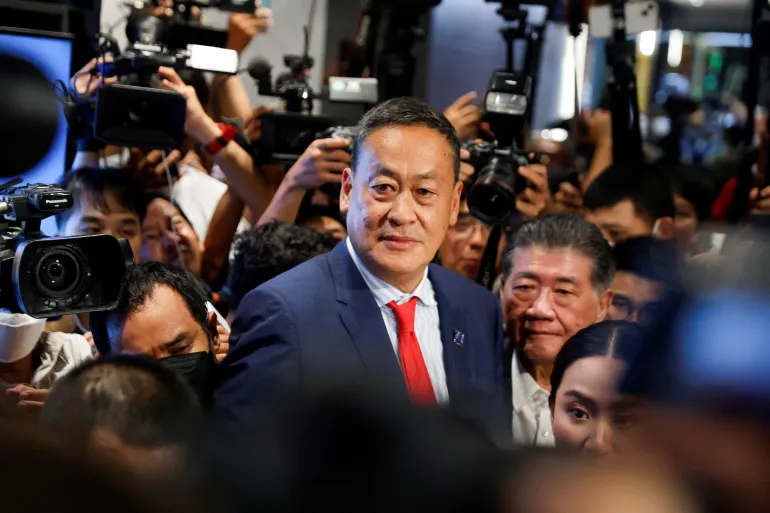In a bid to bolster its tourism industry, Thailand has extended a warm welcome to Indian travelers by allowing them to visit the country without the need for a visa. Starting from November 10, 2023, this visa-free travel opportunity for Indians will remain in effect until May 10, 2024. India holds a significant position as one of the primary sources of tourism for Thailand, and this move aims to further strengthen their travel ties.
thailand
New Thailand PM Srettha Thavisin Takes Office Alongside Thaksin’s Exile Return
Srettha Thavisin was elected Thailand’s new prime minister on Tuesday, August 22, 2023, hours after Thaksin Shinawatra, the former prime minister who is his party’s figurehead, returned from self-imposed exile.
Thavisin, a real estate mogul, won the backing of both the upper and lower houses of parliament, becoming the country’s 30th prime minister. He is the leader of the Pheu Thai Party, which won the most seats in the May elections but was unable to form a government on its own.
Thaksin’s return to Thailand is a major political event. He was ousted in a military coup in 2006 and has been living in self-imposed exile since then. He is still wanted by the Thai authorities on corruption charges, but he has denied any wrongdoing.
Thaksin’s return is likely to further polarize Thai politics. He is a popular figure among many Thais, but he is also deeply unpopular among the country’s elite and military. His return could lead to further protests and instability in Thailand.
It remains to be seen how Thavisin will govern Thailand. He has promised to unite the country and to address the country’s economic problems. However, he will face a number of challenges, including the ongoing political instability and the country’s economic slowdown.
The election of Srettha Thavisin and the return of Thaksin Shinawatra are major political developments in Thailand. It remains to be seen how these events will unfold and what their impact will be on the country.




